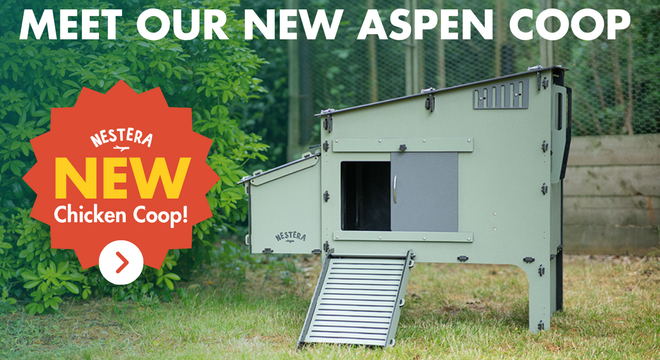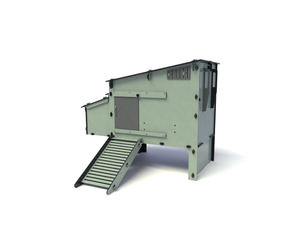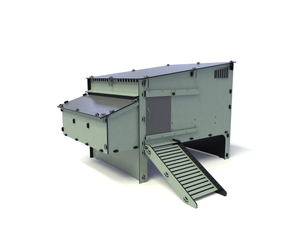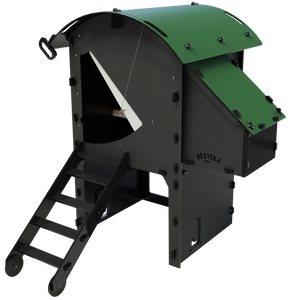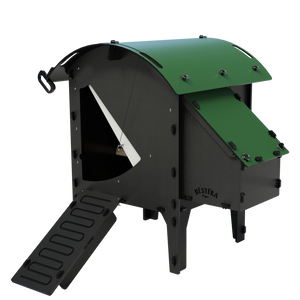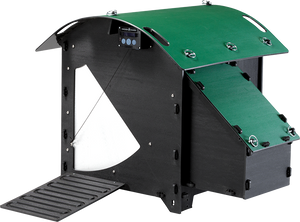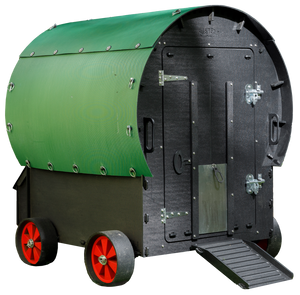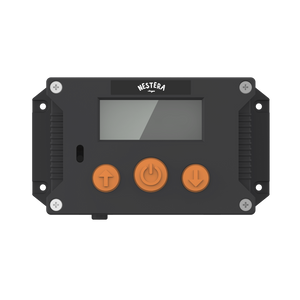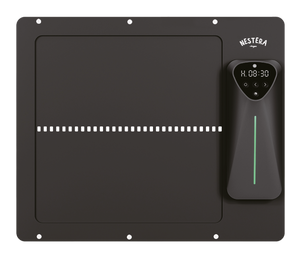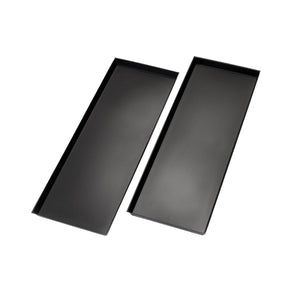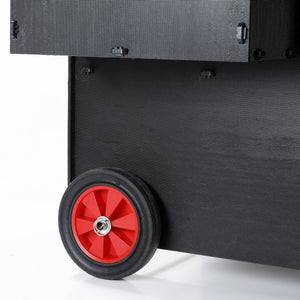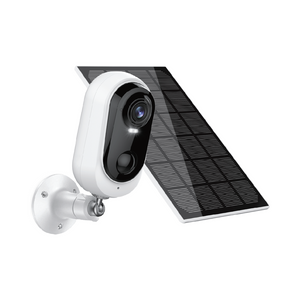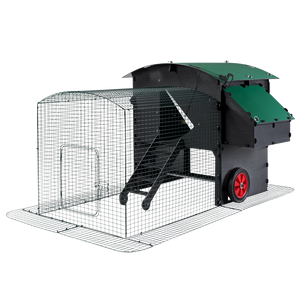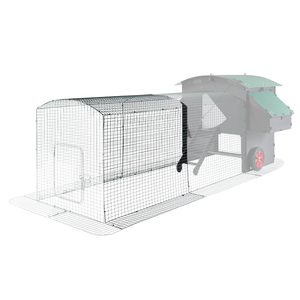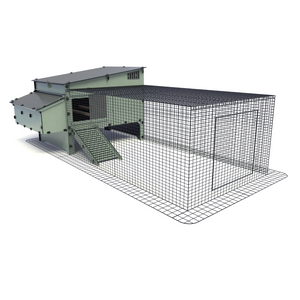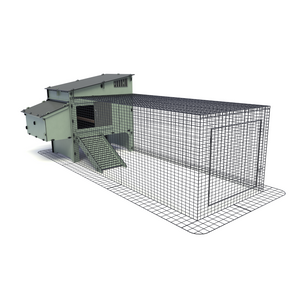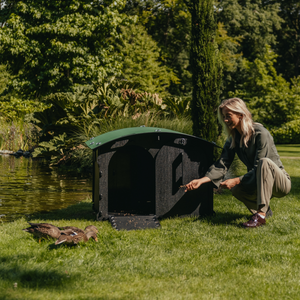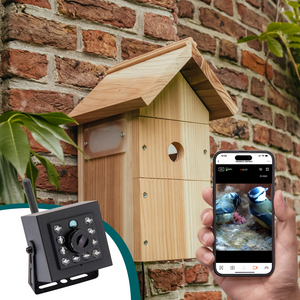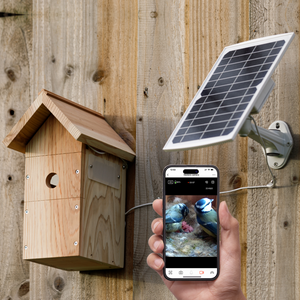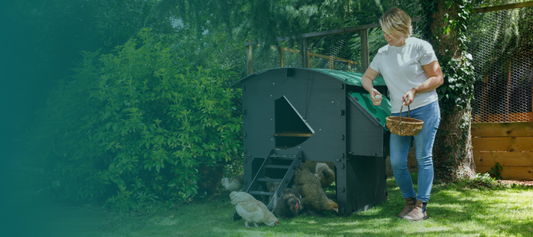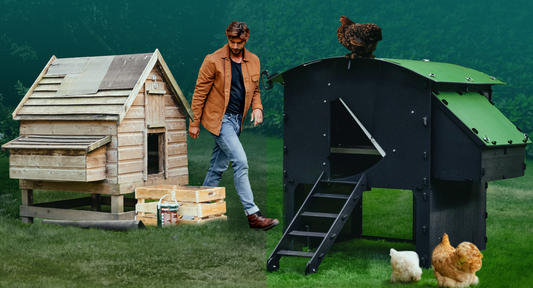Electric Poultry Fencing is an absolute game-changer when it comes to protecting your flock from large predators.
It’s rarely used due to a lack of awareness and understanding but here is a useful guide to help you decide if it’s the right option for you and your flock.
What is electric poultry fencing?
Electric Poultry Fencing is around 3-4ft/90-120cm tall and is usually made from thick black, green, white or orange nylon.
The black and green tend to look the least obtrusive in a garden setting. The fencing comes in 25m/75ft or 50m/150ft lengths with metal spikes to fix it to the ground.
The mesh is made from interlocking vertical and horizontal nylon strands where the horizontals also contain metal strands.
All these metal strands are joined together at each end of the fencing to make a complete circuit.
Arrange the fencing around your chicken coop and birds into any shape you like, but a circle or square is most common.
Electric fencing can easily be moved periodically so this system is particularly good if you have a very large garden or a plot of land.

How does electric poultry fencing work?
The fence is connected to a 9V fencing battery or the mains via an energiser or fencer. This converts the power to a high voltage, high current pulse. When a predator touches the wire it completes the circuit and they receive a swift sharp shock.
This prevents animals from climbing over or under the fencing. Foxes are good at jumping distances like a ditch but struggle to jump heights without scrambling.
Animals have senses that are much more sensitive than ours and they have more of them. When you pass an electric current through a wire it produces a magnetic field.
Many animals can detect this and will be reluctant to go anywhere near the fence. To work, the whole system must be attached to a metal post driven a few feet into the earth to ‘ground’ the system.
In dry weather, you need to remember to water your earth rod periodically to produce a good connection.
Is electric poultry fencing safe?
In the right setting, electric fencing is very safe. To access the run you will either need to use a special ‘gate’ or step over the fencing.
It’s a good idea to place the battery close to where you wish to access the run, so it can be quickly disconnected and reconnected.
Electric poultry fencing is very dangerous to use near horned sheep or goats due to the risk of entanglement. Parents of young children should also exercise caution. Never use electric fencing in a small garden where children will come into close proximity to it. One quick shock from a fence will not be fatal but it will be painful.
Dogs, cats and children who do come into contact with the fence, rarely do it twice!
Won’t my birds fly out?
Some breeds of chicken are particularly flighty which can make this style of fencing a challenge.
White and blue eggers are known for being quite adventurous and an aviary system may be a better bet.
Brown eggers, giant fowl and most bantams like pekins and silkies are quite happy to stay within the fencing and don’t feel believe the grass is greener on the other side!

Can I ‘electrify’ an existing fence?
Yes, you can and quite easily too! It’s a great way of enhancing your original system with less investment.
If you already have a short fence and want to ‘electrify it’ you can use a single strand of fencing wire or ribbon suspended on isolating brackets. Run lots of these at multiple heights running parallel to one another and especially near the top and bottom of the fence.
This system will still need a power supply, energiser and earthing rod to work. Working out how to electrify the gate may need some consideration.
Any other top tips?
The space between the poles on electric poultry fencing can be quite far apart. The fencing usually includes guy ropes to keep the poles upright and the fence taut but they are a tripping hazard.
It’s fairly inexpensive to buy a pack of electric fencing stakes to use halfway between the ‘proper’ poles instead.
Electric fencing will try to make a complete circuit with anything it comes into contact with, including grass. If you can, trim grass before erecting the fencing or otherwise flatten the grass close to the fence using a roll of damp proof course. You can stab the poles and fencing stake through the DPC to insulate the fencing from the grass.
9V batteries come in a variety of sizes and prices. Single use ones seem the cheapest but they need replacing regularly making them bad for the environment and very expensive long term.
Look for ‘use one, charge one’ systems where you get TWO batteries and a small charger and swap them over weekly. They are very easy to use and carry and much better than hauling large car batteries around.
